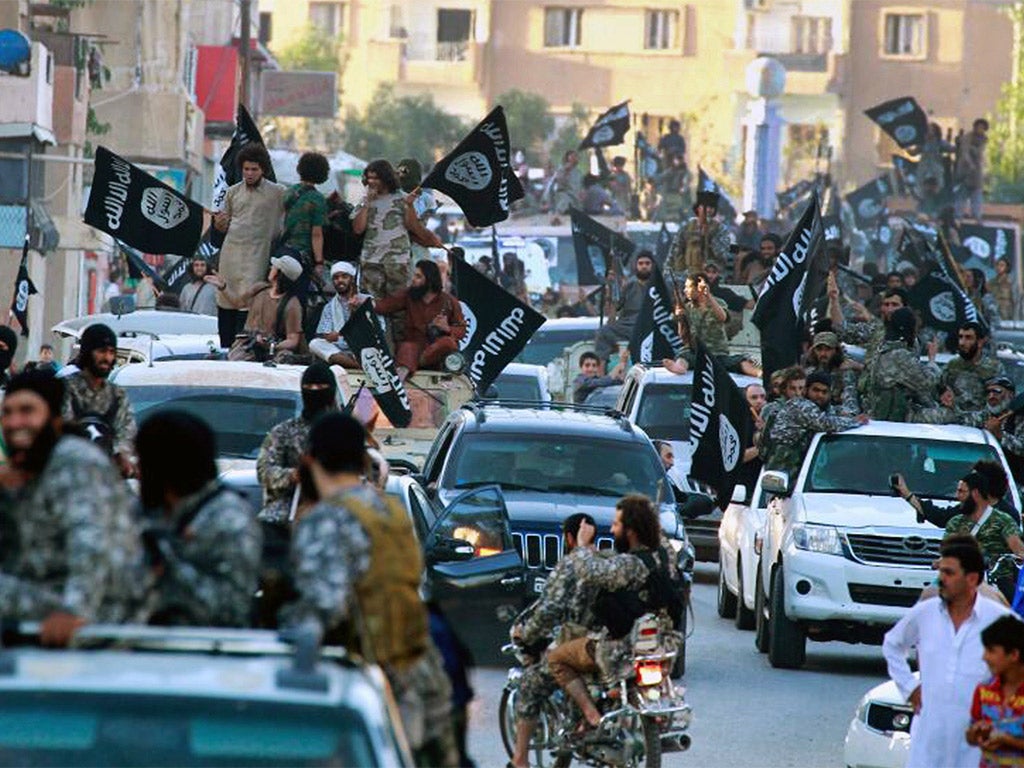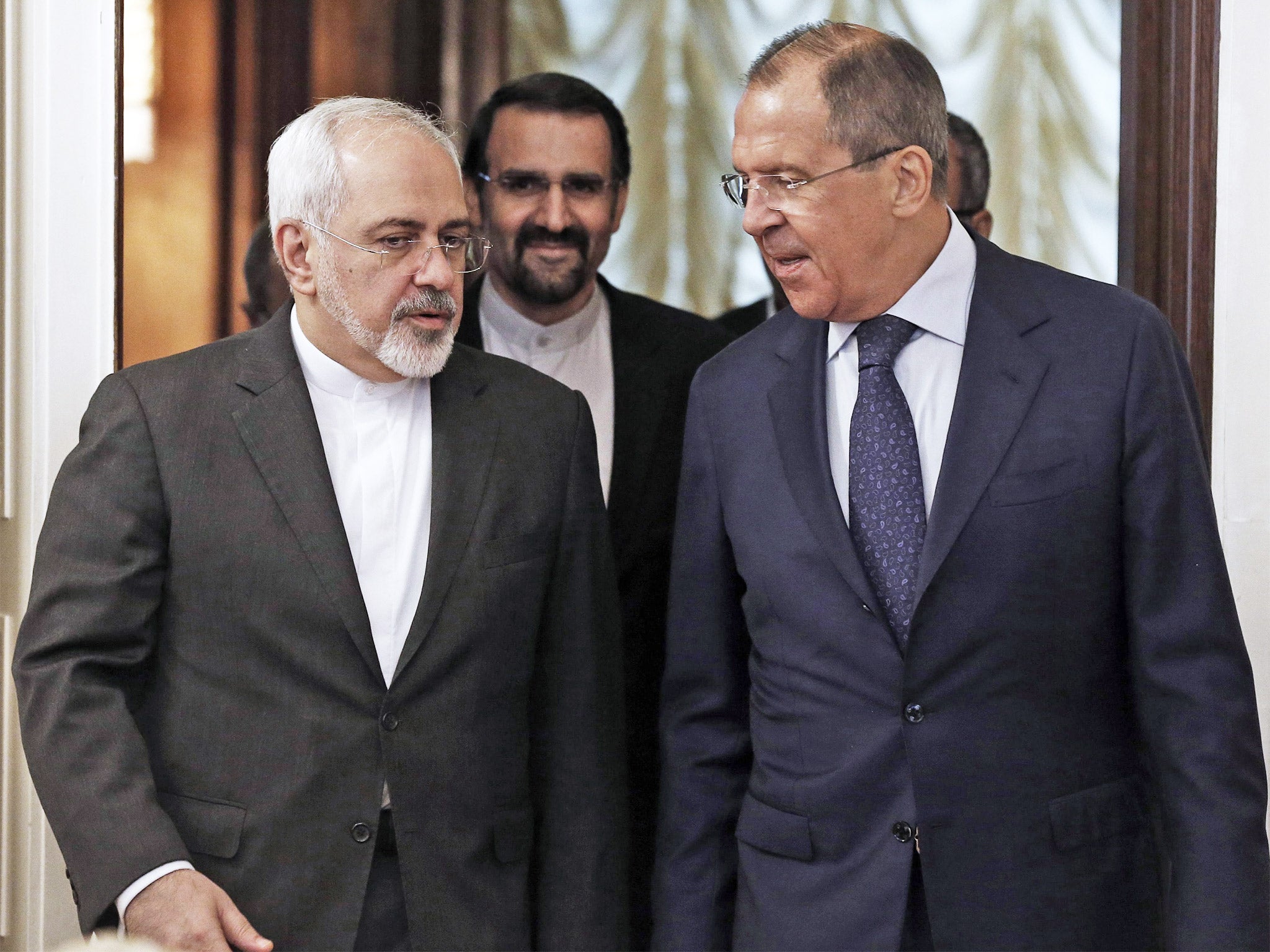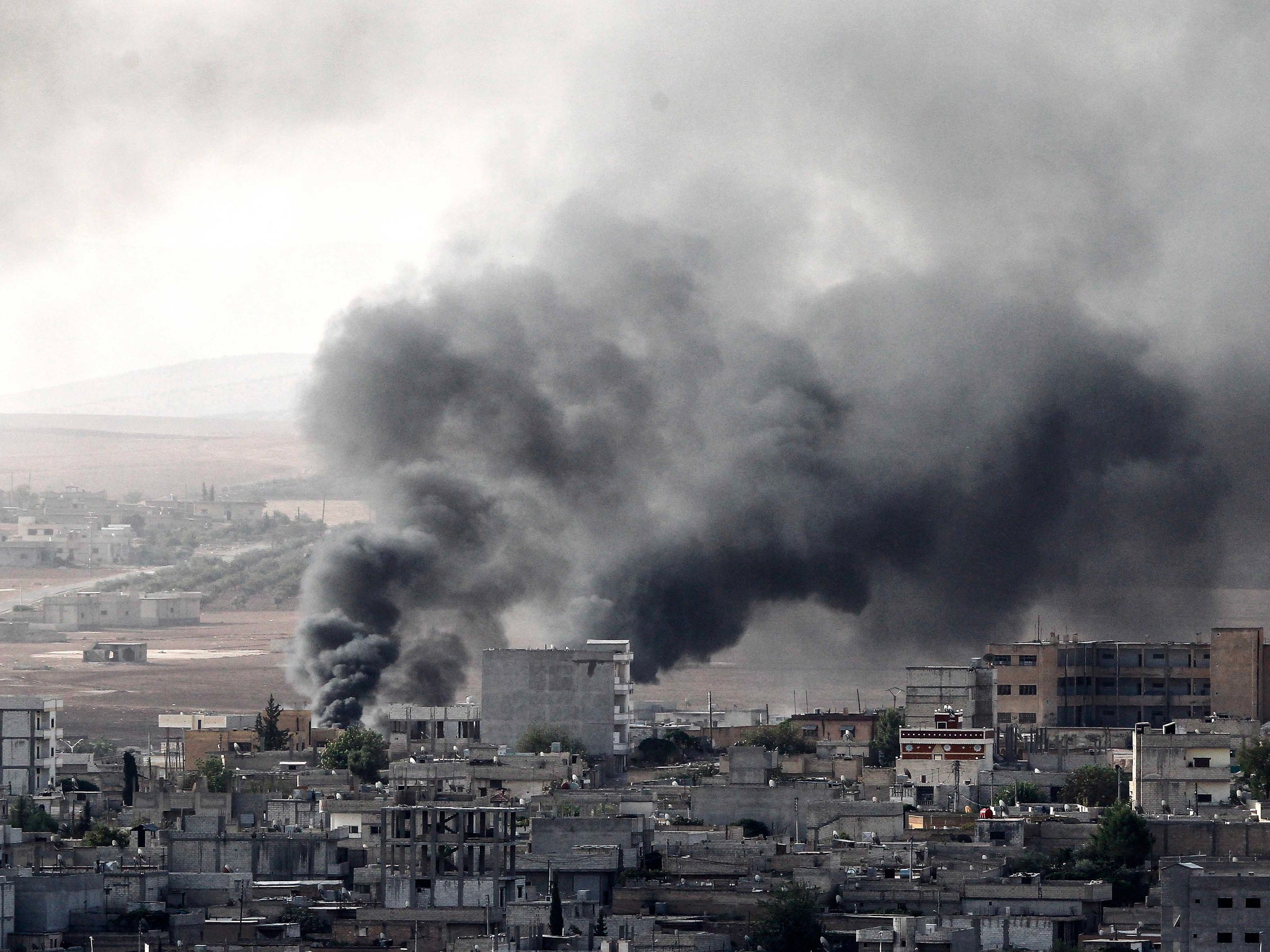War with Isis: Iran seeks to join international coalition battling militants as part of significant shift in its foreign policy
Iranian envoys have been busily lobbying Sunni states to admit the nation to the coalition combating the extremists in Iran, and wants to extend its operations to Syria

Your support helps us to tell the story
From reproductive rights to climate change to Big Tech, The Independent is on the ground when the story is developing. Whether it's investigating the financials of Elon Musk's pro-Trump PAC or producing our latest documentary, 'The A Word', which shines a light on the American women fighting for reproductive rights, we know how important it is to parse out the facts from the messaging.
At such a critical moment in US history, we need reporters on the ground. Your donation allows us to keep sending journalists to speak to both sides of the story.
The Independent is trusted by Americans across the entire political spectrum. And unlike many other quality news outlets, we choose not to lock Americans out of our reporting and analysis with paywalls. We believe quality journalism should be available to everyone, paid for by those who can afford it.
Your support makes all the difference.Iran is seeking to join the international coalition’s war with Isis in a move with huge repercussions for Syria’s civil war.
As part of a new diplomatic offensive following the successful negotiations with world powers over its nuclear programme, the predominant Shia state in the Middle East is making a concerted effort at building bridges with neighbouring Sunni states – traditionally regarded as rivals – in a significant shift in the country’s foreign policy.
A projected plan for Tehran to join an alliance alongside the West and Arab states against the Islamist group, with Russia also a member, was discussed during a visit by the Iranian Foreign Minister Mohammad Javad Zarif to Moscow this week.

The deputy foreign minister Hossein Amir-Abdollahian made an unexpected trip to Saudi Arabia recently to speak about Isis. Mr Zarif, meanwhile, has visited Lebanon, Kuwait and also Qatar. After the last meeting, the Qatari Foreign Minister, Khalid al-Attiyah, said there was a need to have a “serious dialogue with the Iranians” over mutual security concerns.
Ending the conflict in Yemen, where a Saudi-led coalition is carrying out air strikes on Shia Houthi rebels, is, say the Iranians, their most urgent concern. But joining a broad-based campaign against Isis has become an increasingly public goal for Iran. Tehran is already playing a part in fighting Isis in Iraq in a de facto co-operation with Washington.
The Americans have been carrying out air strikes while Iranian-backed Shia militias are fighting on the ground.
The Pentagon continues to stress that it is only providing air support for Shia militias under the command of Baghdad, but this line has blurred, most notably since March during the battle to recapture Tikrit. Both the countries insist, however that there is no joint military planning.

Now, Iran wants a more formalised alliance and to extend its role to Syria. A senior Iranian diplomat told The Independent: “There is no border at the moment between Iraq and Syria and Isis has its headquarters in Syria, so it is artificial to keep a campaign just to Iraq. After all, that is why Britain wants to join the Americans in extending bombing from Iraq to Syria. Iran can defeat Isis.”
There would, however, be formidable obstacles to Iran’s taking a prominent role against Isis in Syria. The rebels, who have fought Tehran-backed Hezbollah fighters in the conflict, are bitterly opposed to an Iranian presence in the country.
And, despite reports that the Russians and the Iranians may be preparing to abandon Bashar al-Assad, Tehran is still standing by him. The opposition insists that his removal is fundamental to a peace deal.
The Israelis, who view Iran as an existential threat, and who were bitterly opposed the nuclear deal, would not be willing to accept Iranian forces across the border in Syria. They will lobby Washington to prevent this happening.
But a diplomatic momentum is building up over Syria with the US, Russia and the Saudis holding the first-ever joint talks on trying to end the conflict. Moscow is facing its own problem with Islamists pledging allegiance to Isis attempting to instigate jihad in the central Asian republics. Moscow has hosted meetings with both the rebels and the Assad regime.
At the same time, the Russians have called for a new coalition to fight Islamist extremists with the Iranians playing a key role. Last month, the Foreign Minister Sergei Lavrov said that the signing of the nuclear deal “removed the barrier, largely artificial, on the way to a broad coalition to fight Isis”.
Restating his government’s willingness to join others against the Islamists, Mr Zarif said, after the meeting with the Russians last month: “Our common threat today is the growing menace of violent extremism and outright barbarism. The menace we’re facing – and I say we, because no one is spared – is embodied by the hooded men who are ravaging the cradle of civilisation. To deal with this new challenge, new approaches are badly needed.”
But it is the reaction of the West and of some Arab states which the Iranians say has been a source of encouragement. The US Secretary of State, John Kerry, has spoken about the need “to change the dynamic in Syria” to combat Isis. He added that he would discuss what role Iran can play against the group with Mr Lavrov.
Federica Mogherini, the European Union High Representative for Foreign and Security Policy, believes that the nuclear deal with Tehran “opens the way for a new confidence in combating Isis”.
Egypt, which had quietly bowed out of earlier plans to lead an Arab League ground force into Yemen and finds itself fighting an increasingly violent Isis insurgency in the Sinai, is seeking a strategic security partnership with Iran and offering to mediate between Tehran and Riyadh, according to Mohammed Haykal, the prominent commentator and former adviser to President Gamal Abdel Nasser.
“The time has come to put aside past differences and face the common enemy,” said an Iranian diplomat.
“We managed to reach an agreement on the very complex nuclear issue. Why can’t we form an agreement to fight the terrorists of Isis?”
Join our commenting forum
Join thought-provoking conversations, follow other Independent readers and see their replies
Comments